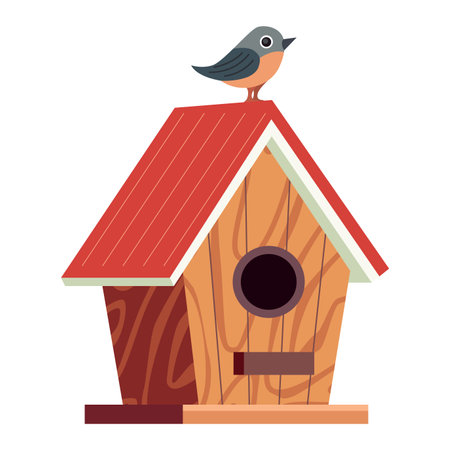1. Stainless Steel: The Gold Standard for Durability and Safety
When it comes to choosing a birdcage, stainless steel is one of the best materials available. It offers exceptional durability, resistance to rust, and a non-toxic surface, making it a reliable choice for bird owners who want a long-lasting and safe environment for their feathered friends.
Why Stainless Steel Stands Out
Unlike other materials that may degrade over time, stainless steel remains strong and secure. It does not chip, crack, or corrode easily, ensuring that your birds home remains safe for years to come. Additionally, stainless steel cages do not require coatings or paints that could potentially contain harmful chemicals.
Key Benefits of Stainless Steel Cages
| Benefit | Description |
|---|---|
| Rust-Resistant | Stainless steel does not rust, preventing health risks caused by corrosion. |
| Durability | Able to withstand wear and tear, ensuring long-term use. |
| Toxin-Free | No need for coatings or paint that could be harmful to birds. |
| Easy to Clean | The smooth surface makes cleaning quick and efficient. |
Is Stainless Steel Worth the Investment?
Although stainless steel cages tend to be more expensive upfront compared to other materials like powder-coated metal or plastic, they offer unmatched longevity. Bird owners who choose stainless steel often find that they save money in the long run by avoiding frequent replacements and potential vet bills caused by exposure to toxic materials.
Best for All Bird Sizes
Whether you have a small parakeet or a large macaw, stainless steel cages come in various sizes and designs to suit different bird species. Their sturdy construction ensures that even strong-beaked birds cannot bend or break the bars, providing both safety and security.
Final Thoughts on Stainless Steel Cages
If youre looking for a high-quality, long-lasting cage material that prioritizes bird safety and comfort, stainless steel is an excellent choice. Its durability, toxin-free nature, and easy maintenance make it a preferred option among responsible bird owners.
2. Powder-Coated Steel: A Budget-Friendly and Safe Alternative
Powder-coated steel provides a balance between affordability and durability, offering a non-toxic coating that helps prevent rust while ensuring bird safety. This material is a popular choice among bird owners who want a sturdy cage without spending a fortune.
Why Choose Powder-Coated Steel?
Unlike plain steel, which can rust over time, powder-coated steel has a protective layer that enhances its longevity. The coating is also designed to be bird-safe, meaning it does not contain harmful toxins that could pose health risks to your feathered friend.
Benefits of Powder-Coated Steel Cages
- Affordability: Compared to stainless steel, powder-coated steel is much more budget-friendly while still providing excellent durability.
- Rust Resistance: The powder coating helps protect the metal from moisture, reducing the risk of rust and corrosion.
- Bird-Safe Coating: High-quality powder coatings are non-toxic and safe for birds, preventing any accidental ingestion of harmful materials.
- Variety of Colors: Many cages come in different colors, allowing you to match the cage with your home decor.
Comparison: Powder-Coated Steel vs. Other Materials
| Material | Cost | Durability | Rust Resistance | Safety for Birds |
|---|---|---|---|---|
| Powder-Coated Steel | Affordable | Good | Moderate (Coating protects against rust) | Safe (Non-toxic coating) |
| Stainless Steel | Expensive | Excellent | High (Naturally rust-resistant) | Very Safe (No coatings needed) |
| Plain Steel | Affordable | Poor (Prone to rust) | Poor (Rusts easily) | Potentially Unsafe (May require additional coatings) |
| Aluminum | Moderate to High | Good | High (Does not rust) | Safe (Non-toxic) |
Caring for a Powder-Coated Steel Cage
To keep your bird’s cage in top condition, regular maintenance is key. Here are some tips:
Avoid Harsh Cleaning Products
Mild soap and water are best for cleaning powder-coated steel. Avoid using strong chemicals or abrasive scrubbers that could damage the coating.
Inspect for Chipping or Peeling Paint
If you notice any chipped areas, address them immediately. Some birds may chew on exposed metal, which could lead to health issues.
Keep the Cage Dry
Although the coating helps prevent rust, excessive moisture can still cause problems over time. Wipe down any wet spots and ensure proper ventilation around the cage.
Is Powder-Coated Steel Right for Your Bird?
If you’re looking for an affordable yet safe and durable option, powder-coated steel cages are an excellent choice. They provide a great balance between cost-effectiveness and functionality while ensuring your birds environment remains secure and comfortable.

3. Aluminum: Lightweight and Rust-Resistant for Long-Term Use
Aluminum cages are a great option for bird owners looking for a lightweight solution that resists rust, making them ideal for humid environments or outdoor aviaries. Unlike other metals that may corrode over time, aluminum remains durable and safe for birds.
Why Choose Aluminum for Bird Cages?
There are several reasons why aluminum is a top choice for bird cages. It provides a balance of durability, safety, and ease of maintenance. Below are some key benefits of using aluminum cages:
Benefits of Aluminum Cages
| Feature | Benefit |
|---|---|
| Lightweight | Easy to move and transport |
| Rust-Resistant | Perfect for humid climates and outdoor use |
| Non-Toxic | Safe material that won’t harm birds |
| Durable | Long-lasting with minimal wear and tear |
| Easy to Clean | Smooth surface allows for quick maintenance |
Ideal Uses for Aluminum Bird Cages
Because of its rust-resistant properties, aluminum is an excellent choice for specific situations where moisture is a concern. Here are some ideal uses:
- Outdoor Aviaries: Aluminum stands up well against rain and humidity.
- Homes in Humid Climates: Prevents corrosion in areas with high moisture levels.
- Travel Cages: Lightweight design makes transportation easier.
Caring for an Aluminum Cage
Maintaining an aluminum cage is simple. Regularly wipe it down with a damp cloth to remove dust and debris. For deeper cleaning, use a mild soap and water solution. Avoid abrasive cleaners that could scratch the surface.
Is an Aluminum Cage Right for Your Bird?
If you need a lightweight, rust-resistant, and easy-to-maintain cage, aluminum is a fantastic option. Whether you have a small parakeet or a larger parrot, aluminum cages offer a safe and long-lasting environment for your feathered friend.
4. Acrylic and Plexiglass: A Stylish, Easy-to-Clean Option
Acrylic or plexiglass cages offer a modern look with easy maintenance, reducing mess while providing excellent visibility and draft protection for your bird. These materials are becoming increasingly popular among bird owners who want a sleek design without compromising on safety and comfort.
Benefits of Acrylic and Plexiglass Cages
Choosing an acrylic or plexiglass cage comes with several advantages that make them a great option for both birds and their owners:
| Feature | Benefit |
|---|---|
| Clear Visibility | Acrylic and plexiglass provide an unobstructed view of your bird, making it easier to monitor their health and behavior. |
| Easy to Clean | The smooth surfaces prevent dirt buildup and are simple to wipe down with a damp cloth. |
| No Bar Gaps | This eliminates the risk of birds getting their beaks, feet, or feathers stuck between bars. |
| Draft Protection | The solid walls help protect birds from cold drafts, which can be especially beneficial in colder climates. |
| Modern Aesthetic | Acrylic cages have a sleek and contemporary appearance that blends well with home décor. |
Things to Consider Before Choosing an Acrylic Cage
Acrylic and plexiglass cages have many benefits, but they may not be the best fit for every bird owner. Here are some factors to keep in mind:
- Ventilation: Since acrylic cages lack traditional bars, proper ventilation must be ensured through well-placed air holes or panels.
- Sensitivity to Scratches: Acrylic can scratch more easily than metal or glass, so using soft cleaning materials is important.
- Lighter Weight: While this makes them easier to move, some larger birds may require a sturdier cage material for durability.
- Cost: High-quality acrylic cages can be more expensive than standard metal options.
Caring for an Acrylic or Plexiglass Cage
Acrylic cages require specific care to maintain their clarity and cleanliness. Follow these simple tips:
Avoid Harsh Chemicals
Abrasive cleaners can cause scratches or cloudiness. Use a mild soap solution or specialized acrylic cleaner instead.
Dust Regularly
Acrylic attracts dust due to static buildup. Wiping it down with a microfiber cloth helps keep it clear and clean.
Smooth Out Scratches If Needed
If minor scratches appear, they can often be buffed out using an acrylic polish designed for plastic surfaces.
Acrylic and plexiglass cages offer a great combination of style, functionality, and ease of maintenance. They work particularly well for bird owners looking for a clean, modern aesthetic while prioritizing their pet’s comfort and safety.
5. Avoiding Toxic Materials: What to Stay Away From
Choosing the right cage material is essential for your birds health and comfort. Some materials may seem sturdy or affordable, but they can contain harmful substances that pose serious risks to your feathered friend. Here are some materials you should avoid when selecting a birdcage.
Galvanized Wire
Galvanized wire is often used in cages because its inexpensive and durable. However, it contains zinc, which can be toxic to birds if they chew or scrape their beaks against it. Over time, zinc poisoning can lead to serious health issues, including weakness, digestive problems, and even death.
Lead-Based Paints
Older cages or poorly made ones may be coated with lead-based paint. Birds are naturally curious and often nibble on surfaces in their environment. If they ingest lead particles, it can cause neurological damage, weight loss, or even fatal poisoning. Always ensure that any painted cage is labeled as lead-free and safe for birds.
Unsafe Plastics
Plastic cages might seem like a lightweight and easy-to-clean option, but not all plastics are safe for birds. Some contain harmful chemicals like BPA or phthalates, which can leach out over time. Additionally, birds that chew on plastic parts may accidentally ingest small pieces, leading to digestive blockages or toxicity.
Comparison of Unsafe Cage Materials
| Material | Why Its Unsafe |
|---|---|
| Galvanized Wire | Contains zinc, which can cause poisoning if ingested. |
| Lead-Based Paints | Toxic if ingested; can cause neurological damage. |
| Poor-Quality Plastics | May contain harmful chemicals; risk of ingestion. |
Selecting Safe Alternatives
The safest choices for birdcages include stainless steel, powder-coated metal, or non-toxic hardwoods. These materials provide durability without the risk of harmful chemicals. Always check product labels and reviews to ensure that the cage you choose meets safety standards for birds.


